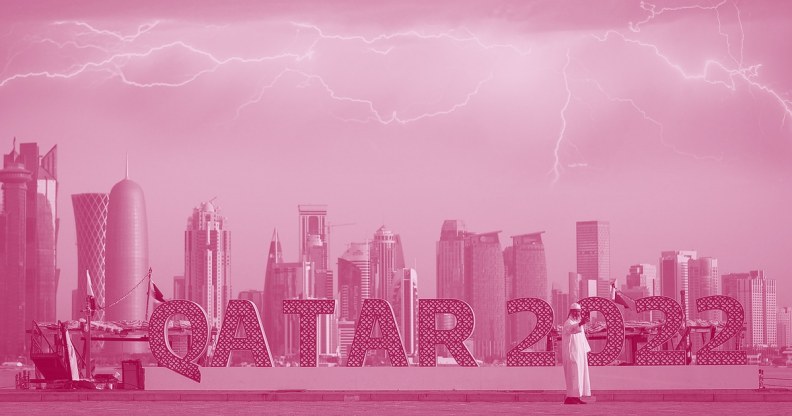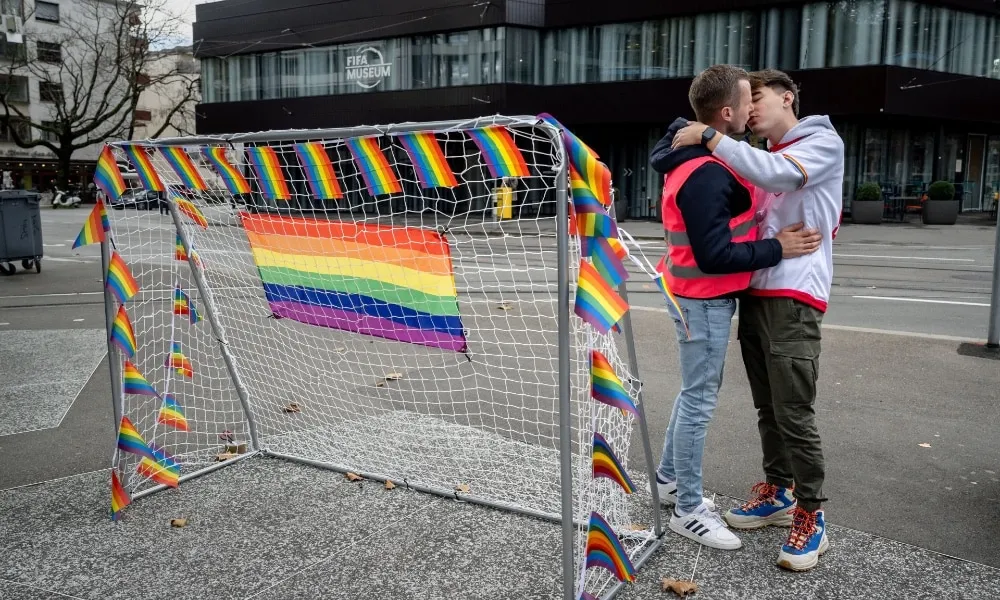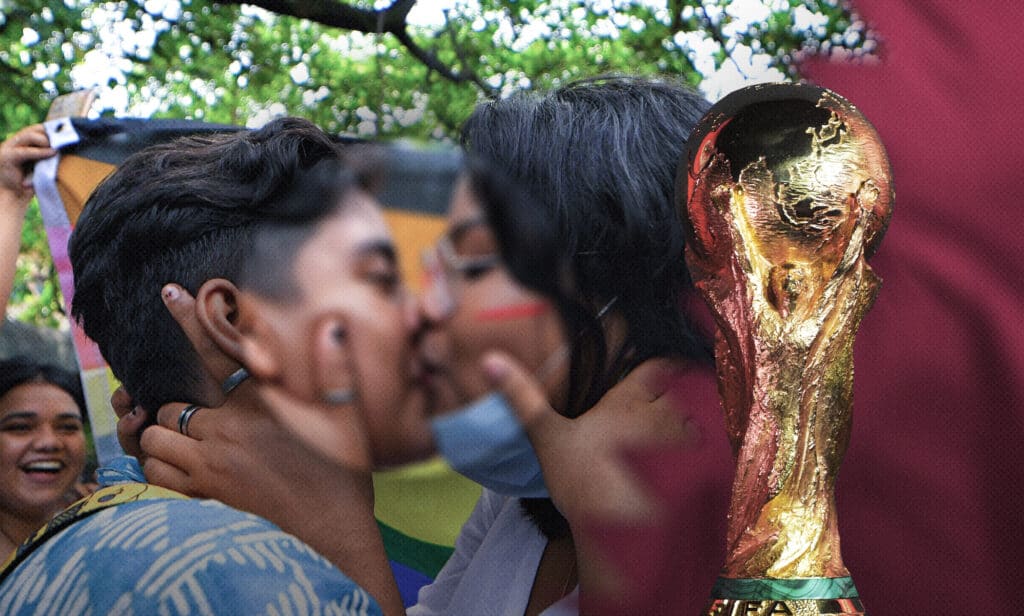Qatar and LGBTQ rights: World Cup host’s archaic, deadly laws and the backlash explained

Qatar criminalises LGBTQ+ people. (Getty)
In Qatar, LGBTQ+ people face persecution, imprisonment and even death.
Qatar will host the men’s football World Cup, which kicks off on Sunday (20 November), even though the country has a long history of human rights offences, including those against LGBTQ+ rights.
The decision to give Qatar the World Cup has proved incredibly controversial – figures from Dua Lipa to David Beckham have been dragged into the controversy, with some speaking out against the atrocities, while others accept fat cheques to sportswash.
Beckham has faced considerable backlash for his reported £10 million-a-year detail to be the face of Qatar. Comedian Joe Lycett has given the football an ultimatum – pull out of the deal, or watch as Lycett shreds £10,000, and with it, Beckham’s reputation.
What are the laws on gay sex in Qatar?
Article 285 of Qatar’s Penal Code bans same-sex sexual activity for both men and women, with a maximum sentence of seven years in prison.
The Penal Code also criminalises “leading, instigating or seducing a male in any way to commit sodomy” and “inducing or seducing a male or female in any way to commit illegal or immoral actions”.
And a “protection of community” law (number 17 of 2002) means Qatari forces are allowed to detain people for up to six months without charge or trial if there are “well-founded reasons to believe that the defendant may have committed a crime”.
Combined, these laws allow Qatar security services to arbitrarily arrest LGBTQ+ people and detain them without any access to accountability or trial.
Qatar, officially recognises Islam as the state religion, and under Sharia law Muslim men can be sentenced to death by stoning for homosexuality.
In 2013, Qatar, along with several other Gulf States, proposed introducing tests to stop LGBTQ+ people from entering the country. The tests would have involved invasive medical checks, but thankfully they were never introduced.

A protest took place against the Qatar World Cup outside the FIFA museum in Zurich. (Getty Images)
Qatar arrests and abuses LGBTQ+ people
In October 2022 it was reported LGBTQ+ people in Qatar are still being arrested despite the global media attention that’s resulted from the World Cup, with Human Rights Watch documenting 11 cases where people were allegedly beaten or sexually harassed in police custody.
Four transgender women, one bisexual woman and one gay man were reportedly imprisoned without charge, legal counsel, or trial, and forced to sign pledges promising they would “cease immoral activity”.
The detainees said they were forced to unlock their phones and hand over private photos, as well as contact information for other LGBTQ+ people.

LGBTQ+ football fans have been warned against public displays of affection in Qatar. (Getty Images)
Since the World Cup was announced, Qatar has tried to tone down its anti-LGBTQ+ rhetoric, saying visitors would be free to fly rainbow flags at football games.
UK foreign secretary James Cleverly was criticised for advising LGBTQ+ fans to “be respectful of the host nation”, adding: “With a little bit of flex and compromise at both ends, it can be a safe, secure and exciting World Cup.”
Labour MP Luke Pollard called on the government to apologise for telling LGBTQ+ people to effectively go “back into the closet”.
And fellow Labour MP Nadia Whittome tweeted that LGBTQ+ people cannot “compromise” when it comes to safety.
On 14 November, Cleverly said the Foreign Office’s travel advice was “designed to make sure that people can be safe and happy”.
Human Rights Watch has called for more international pressure, saying: “Suggestions by officials that Qatar would make an exception to its abusive laws and practices for outsiders are implicit reminders that Qatari authorities do not believe that its LGBT citizens and residents deserve basic rights.”

